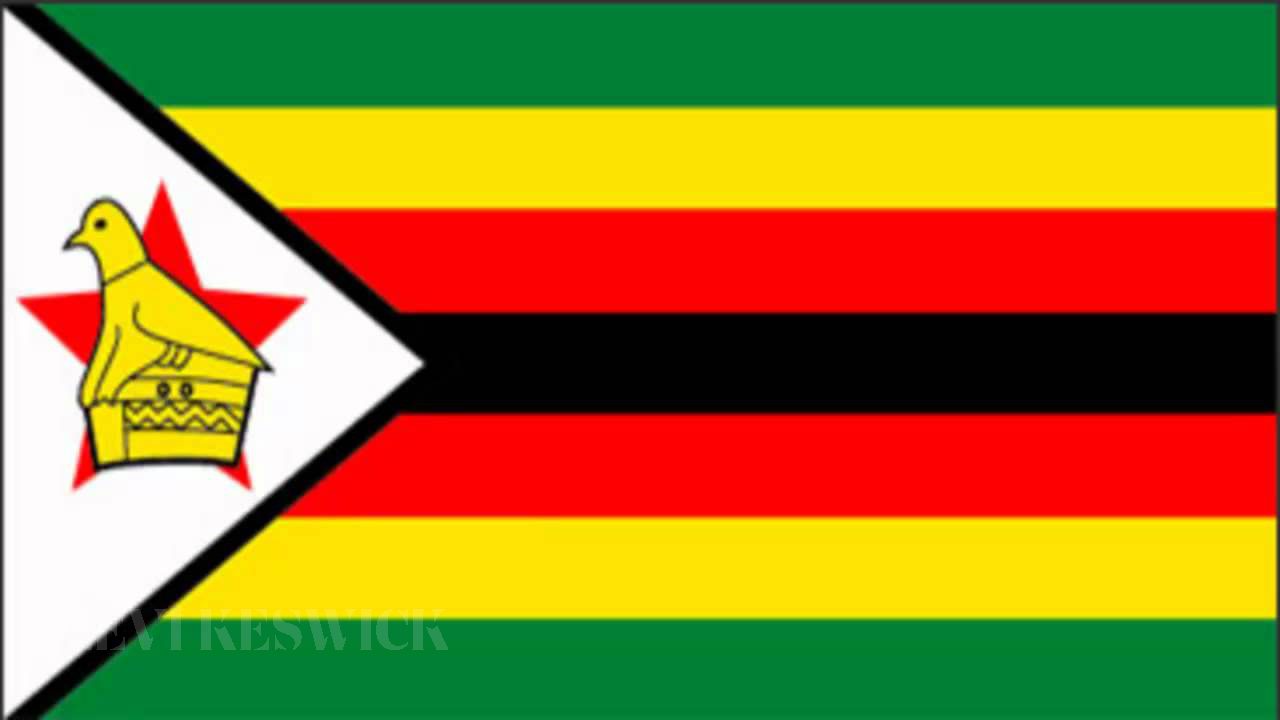Too often business people fall into the trap of violating basic business etiquette. This leads to alienating of customers, losing contract, clients or even losing contracts and business opportunities. Let us look at key business etiquette that one needs to adhere to in Zimbabwe.
Identification of the business partners
In Zimbabwe, it is expected that a mare representative of a company will attend a meeting or talk on their behalf. It is a disorderly conduct to summon someone and then get another person to do the job. In the same manner, it defies business etiquette to send another person to a meeting or talk, instead of having the representative come in person.
No need to be labor
Learning on this one is simple. Obviously, it is disrespectful of the people’s time when they prolonged to hear a presentation. Most people have their own business and do not have time to wait for others to finish talking.
Be pressurized into paying exorbitant amount
The art of selling is not attained overnight. You can rely on existing clients to show appreciation of your service or goods for them to be willing to pay you an amount that you deem below your expectation. Customers know what you have done, so they will be in a position to negotiate and agree on terms that are both affordable and acceptable to one another.
Allow such a situation to make you lose a deal. You will never be in a better position to negotiate than now. Hold your price and insist on your terms. In case the other party does not want your service or product, they will walk away.
Review of existing contracts
There is no law that would compel any business to keep an existing deal if both parties agree to conclude it. Even the changing economy would also not necessitate the conclusion of a contract. The parties involved, however, are expected to give a notification of termination of the contract. In such a case, they are expected to terminate the contract with dignity.
Payment of the debt immediately
This is a matter of principle. You should be able to pay your debts as soon as the money comes in. Being able to pay your debts within a stipulated time is a matter of pride for any business person. Have a situation where you have used credit because of a cash flow problem, it is not considered professional to default on your debts.
These etiquette defined above are what will help you maintain that professional aura as a business person. Other than being polite, these expected etiquette will make your business run smoothly.
Zimbabwean Business Law and Customs
Zimbabwe has a very progressive business environment, with opportunities for all types of industry. The biggest industries in Zimbabwe include:
* Agriculture – Zimbabwe’s economy is about 80 percent agriculture-based, putting it in the top 15 among agricultural countries in the world. Zimbabwe has fertile soil with steady rainfall, making it an extraordinarily productive agricultural nation.
* Mining – Zimbabwe is known as an easy treasure-hunting country. The country has significant deposits of diamond, gold, platinum, nickel, chrome, manganese, and copper ore. Large-scale mining operations during the 1950’s and 60’s brought significant mineral wealth to the country that was, by international standards, in the bottom level in terms of wealth. By world standards, however, Zimbabwe had high mineral wealth and was considered a first-world country.
* Tourism – tourism is on a downward trend due to economic and political factors. But the country is still accessible for the typical traveler and still relatively cost-effective. In the past, tourism in Zimbabwe has been heavily promoted and targeted, especially to Israelis, with “Zimbabwean Airways”.
* Services – Zimbabwe is a primary service economy, with from nearly 80 percent of the jobs in the services industry. Services such as banking, stock exchanges, import/export, and media in Zimbabwe are vital to the Zimbabwean economy.
The constitution of Zimbabwe sets it apart from many other countries of its type. The government is a capitalist democracy, where the people can elect parliament and get representatives who can improve their lives.
The constitution establishes a president government with a bicameral parliament consisting of a Senate and House of Assembly. The parliament in Zimbabwe has 168 seats, of which 120 are elected by popular vote, and the remaining 48 seats are reserved for represent the country’s traditional leaders. The president is elected for a five year term, with the possibility of extending it for one more term. The president determines the country’s foreign policy, while the House of Assembly can pass legislation.
The House of Assembly has 61 members who are chosen by popular vote, and the Senate has 36 vacancies filled by traditional leaders. The nation is also governed by a supreme court that can determine the constitutionality of laws passed by the House of Assembly, and an attorney general general that can represent the country in court.
Zimbabwe law is derived from English Common Law, customary law, and statutes passed by parliament. Zimbabwe does not recognize contractual agreements as legally binding to a greater extent without a notarized business certificate, which is called a “certificate of incorporation”, issued by a notary public on the Zimbabwe system. It is important to note that a business license must be in place, and properly obtained before business can commence in Zimbabwe.
Taxation in Zimbabwe is not as complicated as in many other developing countries, where there is double taxation. Corporations are taxed at the corporate rate of 20 percent. In addition, corporations can subtract up to $100,000 per year from their income, and reduce their corporate tax rate to 10 percent.
Individuals are also required to pay taxes. Individuals are taxed on their worldwide income of $6,000 per year. The tax band rises to a maximum of $15,000 for singles, and $10,000 per year for married couples.
Zimbabwe has two different currencies, the Zimbabwe Dollar and the United States Dollar. The United States Dollar is the stronger currency, and can command a premium of as much as 30 percent over the dollar. Many stores and shops in Zimbabwe accept both currencies, and some shops will not accept United States dollars. It is important to ensure that your currency is authentic when exchanging in Zimbabwe.
The legal system in Zimbabwe is not as developed as that of other countries. A person is entitled to legal representation, but it is important to note that the country is not a common-law country, and there are no jury trials. In the event of a dispute, a person is usually represented by a lawyer. It is a common tactic for opposing legal opponents to settle outside the court.
Banking in Zimbabwe is a simple procedure. In order to open a bank account in Zimbabwe, a person needs to fill out a form with your name, address, phone number, a copy of your passport, and employer, as well as provide some form of identification. There is a $500 minimum balance in the account, and that should not be a problem.
The banking institutions in Zimbabwe are divided into three different groups. The first group is the large domestic banks, which are referred to as “Commercial Banks”, the second group is the foreign banks, which are known as “Branch Banking and Trust”, and the third group is the smaller banks known as “Foreign Exchange Banks”.
Zimbabwean Tax System
Companies in Zimbabwe are taxed on income accrued from the company’s income. That income may be determined from specific tax returns. The tax rate on income is 20 percent, with the option to pay 10% excise tax brackets. This is similar to the tax systems that are in place in the United States.
Individuals pay tax on their individual income or on their worldwide income. That tax rate is 20% of the gross income, unless stated in an agreement between the individual and the tax department. The tax brackets vary according to marital status.
Serious penalties are associated with tax fraud and tax evasion as well as failure to comply with tax laws and procedures in Zimbabwe.
The importance of goods and services to Zimbabwe is a reflection of its economic health and development, as well as its international status. Goods are produced in the country for local consumption and for export. The country’s two coastlines are important for the export of goods, but their potential could be enhanced greatly with the development of infrastructure in the interior, which many countries have done.
Zimbabwean Greetings
The greeting that exists in Zimbabwe is slightly different. In Zimbabwe, when you approach someone, there is a phrase that is always used. “Nataka uchi?”, which literally means “how are you?” This greeting is a way to ensure that Zimbabweans maintain greet each other. This is not common in many other cultures, and is not addressed to many other cultures. This greeting occurs even when people are passing each other, and is not precise to good friends. This is a way for Zimbabweans to respect each other in a culture.
The Heterosexual greeting in Zimbabwe is to shake hands. This is the formal greeting in the country, and is only used when meeting someone.
The greeting between family, friends, and acquaintances can be a cheek kiss on the left and then the right cheek. This is usually only reserved between close friends and relatives.
This is an interesting piece of text. Enjoy
A country’s economy is a reflection of the political climate, and the development of certain nations. There are few things that can compare to the health of a nation’s economy. This is true of many countries, but is especially true of Zimbabwe. In Zimbabwe, the economy is important because so much of it relates to the health of the country.
Zimbabwe is a primary service economy, with from nearly 80 percent of the jobs in the services industry. The country’s two coastlines are important for the export of goods, but their potential could be enhanced greatly with the development of infrastructure in the interior, which many countries have done.
Zimbabwe law is derived from the British common law, customary law, and statutes passed by parliament. Zimbabwe does not recognize contractual agreements as legally binding to a greater extent without a notarized business certificate, which is called a “certificate of incorporation”, issued by a notary public on the Zimbabwe system.
Banking
The banking institutions in Zimbabwe are divided into three different groups. The first group is the large domestic banks, which are referred to as “Commercial Banks”, the second group is the foreign banks, which are known as “Branch Banking and Trust”, and the third group is the smaller banks known as “Foreign Exchange Banks”.
Zimbabwean Tax System
Companies in Zimbabwe are taxed on income accrued from the company’s income. That income may be determined from specific tax returns. The tax rate on income is 20 percent, with the option to pay 10% excise tax brackets. This is similar to the tax systems that are in place in the United States.
Individuals pay tax on their individual income or on their worldwide income. That tax rate is 20% of the gross income, unless stated in an agreement between the individual and the tax department. The tax brackets vary according to marital status.
Serious penalties are associated with tax fraud and tax evasion as well as failure to comply with tax laws and procedures in Zimbabwe.
The importance of goods and services to Zimbabwe is a reflection of its economic health and development, as well as engineering, construction, and public works. Goods are produced in the country for local consumption and for export. The country’s two coastlines are important for the export of goods, but their potential could be enhanced greatly with the development of infrastructure in the interior, which many countries have done.
Zimbabwean Greetings
The greeting that exists in Zimbabwe is slightly different. In Zimbabwe, when you approach someone, there is a phrase that is always used. “Nataka uchi?”, which literally means “how are you?” This greeting is a way to ensure that Zimbabweans maintain greet each other. This is not common in many other cultures, and is not addressed to many other cultures. This greeting occurs even when people are passing each other, and is not precise to good friends. This is a way for Zimbabweans to respect each other in a culture.
The Heterosexual greeting in Zimbabwe is to shake hands. This is the formal greeting in the country, and is only used when meeting someone.
The greeting between family, friends, and acquaintances can be a cheek kiss on the left and then the right cheek. This is usually only reserved between close friends and relatives.








